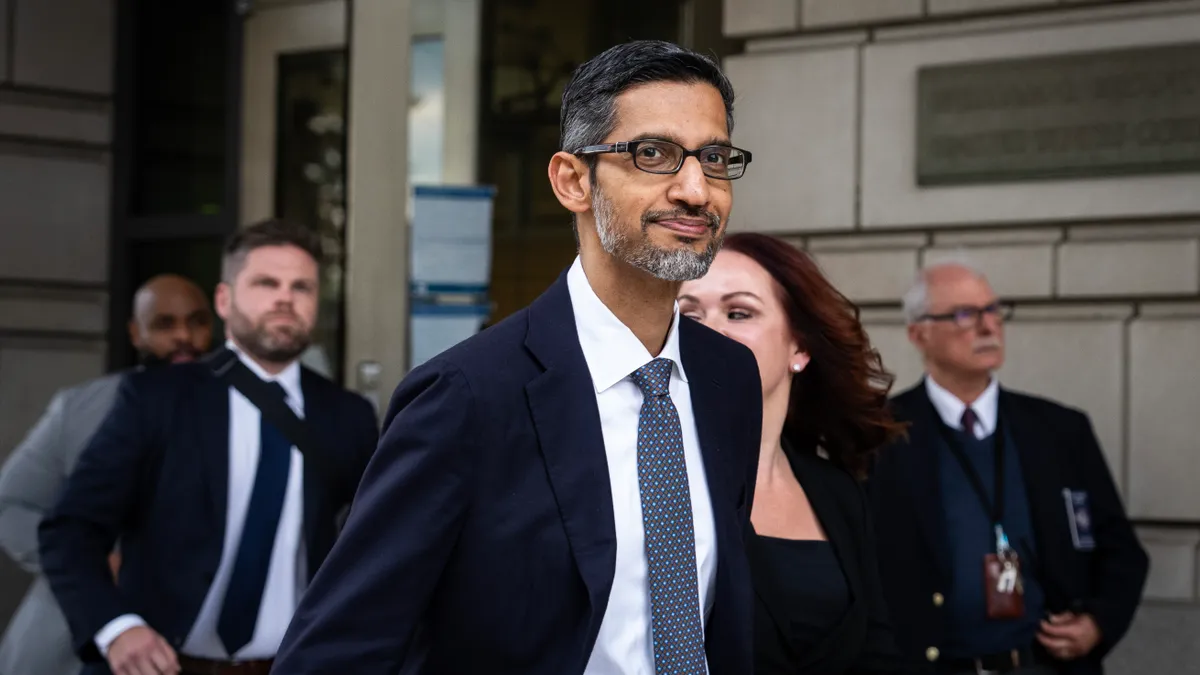Dive Brief:
- Google’s advertising business grew revenue 11% year over year to $64.62 billion in Q2, according to an earnings statement shared by parent company Alphabet.
- Search and other, the company’s largest advertising segment, was up 14% YoY to $48.51 billion, reflecting strong demand from retail and financial services. YouTube, its video platform, grew revenue about 13% to $8.66 billion, under analyst estimates.
- Google is enacting major changes that will impact advertising, including implementing more generative artificial intelligence (AI) into core products like search. The tech giant this week also reversed its decision to deprecate third-party cookies in Chrome, a change that was expected to shake up digital marketing.
Dive Insight:
Google dropped an earth-shaking bit of advertising news Monday with its surprise pivot on cookies, potentially overshadowing its earnings. The company’s financial results were strong on the profit and revenue fronts, though YouTube grew less than expected, with a rate of growth lower than the search business. YouTube in Q1 was measured against a tougher year-ago period than Q2, which executives said helps explain some of the revenue deceleration.
YouTube is also passing the anniversary of a price hike for its connected TV service YouTube TV, a key part of its future video growth strategy. Third-party analysis has indicated that YouTube TV lost subscribers to the tune of about 150,000 in Q1, Business Insider reported. The impact of the pricing increase “will persist through the balance of the year,” CFO Ruth Porat said on a call with investors discussing the Q2 results.
AI continues to be in the spotlight as Google spends heavily to keep pace with the tech sector’s latest arms race. The company released 30 new AI features for advertisers in Q2, touching across search, shopping and the automation-driven Performance Max campaigns.
Google’s initial implementation of generative AI responses in search encountered challenges, producing off-putting and inaccurate results that the platform had to scramble to address. Ad placements currently appear above and below AI Overviews, and Google plans to soon start testing more sponsored ads directly within the window in the U.S.
Asked about Google’s AI initiatives on the investor call, CEO Sundar Pichai said he was “pleased” with how the technology has been additive to search from a consumer perspective.
“We are seeing progress on the organic side. Obviously, monetization is something that we would have to earn on top of it,” Pichai said.
Executives were also questioned about the decision to no longer deprecate cookies in the Chrome web browser, a project Google has been working on for four years — inclusive of multiple delays — with the goal of building a more privacy-safe web. Privacy Sandbox, Google’s proposed alternative to cookies, came under sharp criticism this year from both regulators and advertising trade bodies, culminating in Google reversing course earlier this week.
Pichai said Google will continue work on Privacy Sandbox but reiterated Google’s position that it is shifting focus to put user choice first when it comes to enabling cookies, a tracking technology that helps target advertising around the web.
“We’ll both improve privacy by giving users choice, and we'll continue our investments in privacy-enhancing technologies,” said Pichai. “But it’s obviously an area we will be taking feedback from the players in the ecosystem, and we are committed to being privacy first as well.”















